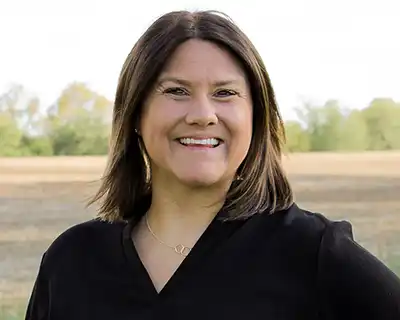Western water expert Aaron Derwingson of The Nature Conservancy will speak at Farm Journal’s upcoming Sustainable Produce Summit happening Sept. 13-17, 2021, on the challenges and opportunities for water conservation and innovation.
As extremely dry conditions persist along the Colorado River Basin, water specialists such as The Nature Conservancy’s Aaron Derwingson of Salida, Colo., are hearing changes in the way scientists and water leaders are talking about what’s happening in the region. The TNC water projects director says people are increasingly moving away from the label “drought” and toward the term “aridification.”
“The Basin is drying out, and there is a steady decline in available water—that’s having an impact,” says Derwingson, water projects director for the region. The Basin spans a vast 250,000 square miles across seven western states and supports a diverse array of ag production including hay, forage, cattle, corn, alfalfa, lettuce and other vegetables. (“If you’re eating greens in the winter in the U.S., you’re eating food grown with Colorado River water,” he points out.)
The effects of this year’s drought are particularly acute.
“It can be quite sad and quite challenging,” Derwingson explains. “Ranchers are reducing herd size, fields go unplanted. Apart from other droughts in the past, this one just feels especially crispy and dry. You can walk out in the field and hear it when you step on the grass.”
The challenges and opportunities of water conservation in the Colorado River Basin will be the subject of a presentation Derwingson and TNC colleague Taylor Hawes, Colorado River program director, will share during the 2021 Sustainable Produce Summit from Sept. 13-17. The event is presented by The Packer, Farm Journal and Trust In Food™, a Farm Journal initiative.
Comments from Hawes will illustrate the severity of the dry conditions affecting the Basin, its producers and its wildlife. Derwingson will provide complementary perspective on the opportunities and successes of water conservation TNC has seen working alongside farmers and ranchers.
“We try to figure out what these win-win solutions look like on the ground,” Derwingson explains. “Part of our broader goal is to change the narrative around water in the west, which is that it’s a zero-sum game. What climate change, drought and every other challenge facing ag and the environment today require us to do is think a little differently and a little more creatively. We will share stories from the ground and places where we’ve built partnerships with producers and companies. There are a variety of tools to figure out how ag can succeed and thrive in the future. We can also have water for the environment and fish. We all depend on healthy freshwater resources, and the best way to get that is to work in partnership.”
There are bright spots and success stories, to be sure. Ongoing research is exploring the potential for growing new crops with low water requirements. In Arizona, TNC helped build a malting house for malted barley and then worked with farmers to shift from alfalfa into barley. They sold the barley to the malt house, and the end product ended up at craft breweries in the Phoenix area. The spent grain can be used in animal feed.
The need for that kind of innovation will only increase, Derwingson believes.
“There’s enormous risk in the basin when it comes to water supply at a big scale,” he says. “You could sort [water access] out at an individual level, but you’re still very much at risk from reduced water security in the Basin. That would keep me up at night if I were relying on ag in the Basin.
“This also feels like another brick on your back if you’re an ag producer,” Derwingson continues. “There’s so much pressure they face every day that they feel. Those of us that work with ag go out and try to figure out new ways of doing business, new solutions. … What we need really right now are the resources to take that to scale, build off of our existing work and replicate that elsewhere.”
To learn more, visit TNC’s Colorado River Basin website.
Click here to register for the Sustainable Produce Summit featuring TNC’s Colorado River presentation.



